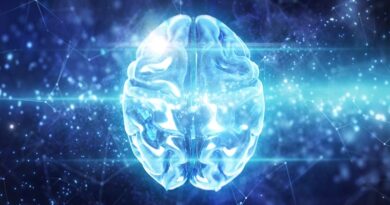WHY IS ARTIFICIAL INTELLIGENCE IMPORTANT FOR AN ENTERPRISE?
AI will transform how work is done in an enterprise; but firms must overcome a number of difficulties in order to reap the benefits of this powerful and constantly expanding technology.
The use of artificial intelligence in the company is fundamentally altering the way firms operate. Companies are implementing artificial intelligence (AI) technologies into their company processes in order to save money, increase efficiency, provide insights, and create new markets.
Why is AI important for an enterprise?
According to IDC, the amount of data generated globally by 2025 would reach 175 zettabytes (~ 175 billion terabytes), a staggering 430 percent growth over the 33 zettabytes generated in 2018.
The explosion in data will be a windfall for organizations committed to data-driven decision-making. Large data sets provide the raw material for producing in-depth business insights that drive enhancements in existing company operations and open up new business lines.
Organizations cannot profit from these massive data stores unless they use AI. Deep learning, a subfield of AI and machine learning, analyzes enormous data sets to uncover subtle patterns and connections in big data that might provide businesses with a competitive advantage.
Likewise, AI’s ability to generate meaningful predictions to get to reality rather than duplicate human biases necessitates not only large amounts of data but also high-quality data. Cloud computing platforms have aided in the development of AI applications by not only offering the processing capacity required to process and handle huge data in a scalable and reliable architecture but also by allowing enterprise users greater access.
Impact of AI in The Enterprise
The strategic importance of artificial intelligence to 21st-century business is in stark contrast to the strategic significance of electricity in the early twentieth century when electrification changed industries such as manufacturing while creating new ones like mass media.
The capacity of AI to automate and augment occupations that are currently performed by humans will have the greatest influence on business in the coming years.
The labour advantages gained via the use of AI are likely to outnumber and even exceed those realized through current workplace automation techniques. And, by evaluating massive amounts of data, AI will create the most effective way to perform a task and alter processes on the fly, as conditions change.
AI is already complementing human employment in a variety of domains, from supporting doctors in clinical diagnosis to assisting call centre personnel in dealing with consumer inquiries and complaints more efficiently. AI is being utilized in security to proactively respond to cyber threats and identify those that require human intervention.
The Future of Artificial Intelligence
One of the features that have distinguished us, humans, over years of existence on Earth, is our singular reliance on tools, as well as our ambition to improve on the tools we make. Once we find a way to make AI think for itself, it will be only a matter of time before AI tools become dangerously intelligent. Then, what is the future of artificial intelligence? Will it be inextricably linked to the future of everything we do?
However, AI-infused technologies are qualitatively distinct from all previous tools. We can communicate with one another. Because they understand us, they have quickly infiltrated our personal space, answering our queries, resolving our issues, and, of course, doing even more of our work.
This synergy isn’t going away anytime soon. The boundary between what is human intelligence and what is AI will likely vanish. This blurring of human and artificial intelligence is occurring as a result of other technological trends, which have been exacerbated by AI. Finally, our future may be one in which intelligence improvement is bidirectional, making both our systems and ourselves smarter.




